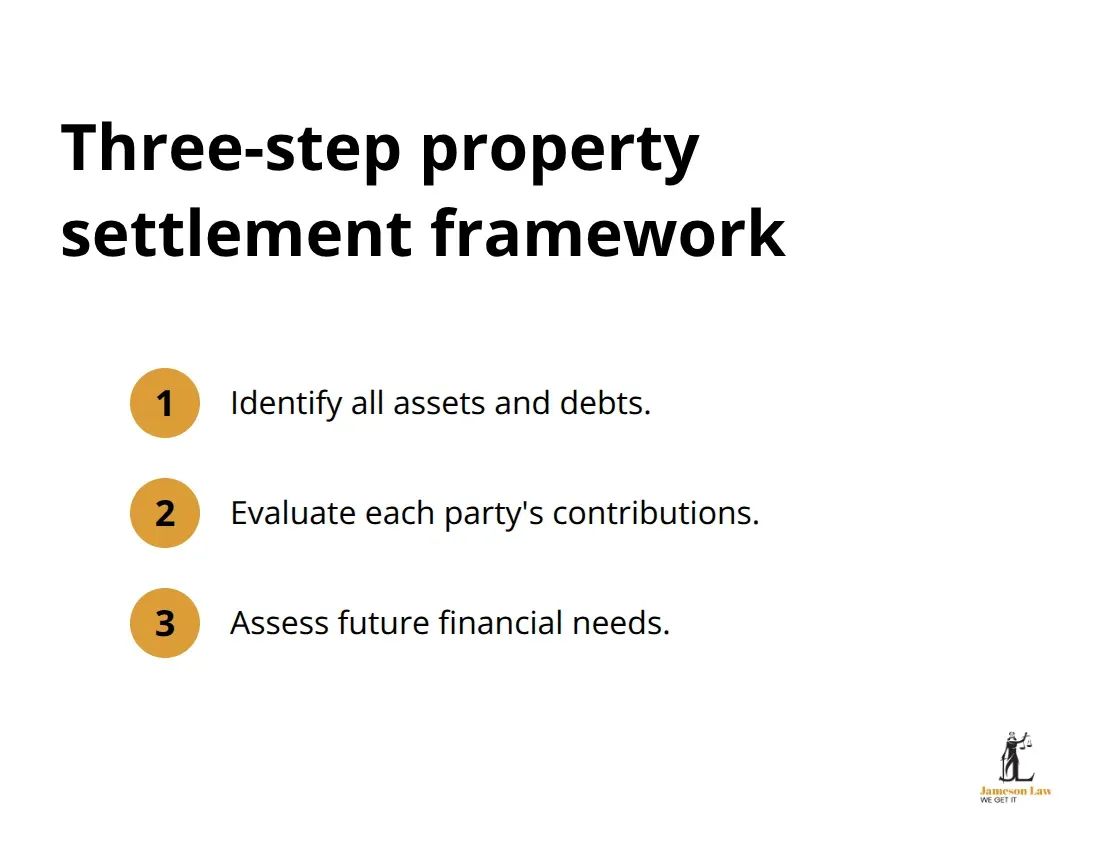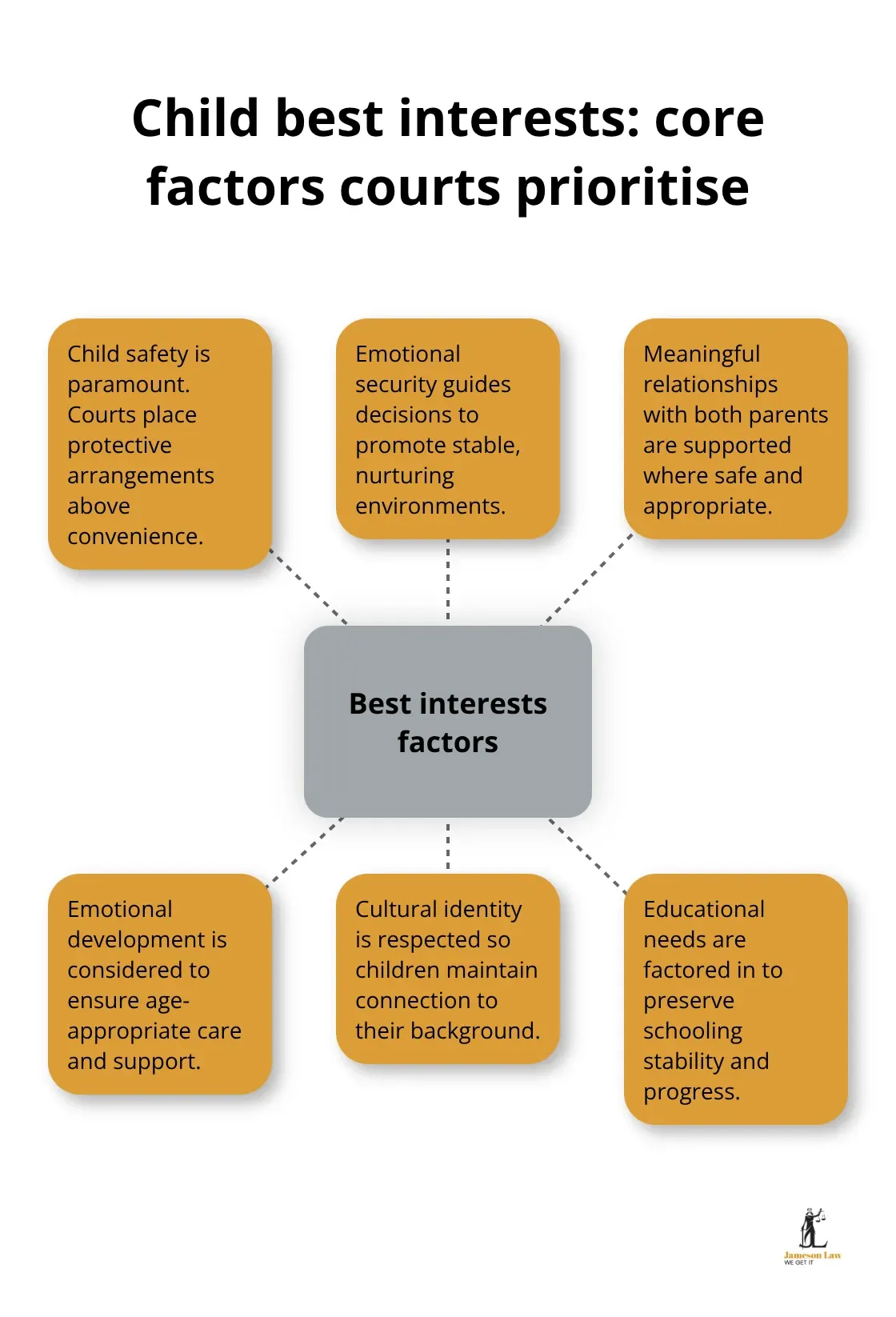Australian family law changes in 2024 have reshaped how families navigate divorce, separation and parenting arrangements. These updates affect everything from property settlements and parenting to child support calculations.
We at Jameson Law see firsthand how these modifications impact our clients’ cases. Understanding these changes helps families make informed decisions during challenging times. For tailored help, contact Jameson Law in Sydney.
What Changed in Australian Family Law This Year
The Family Law Amendment Act 2024 transforms how Australian courts handle property settlements and parenting arrangements, with the most significant changes taking effect 10 June 2025. Courts must now explicitly consider family violence, including economic and financial abuse, when they divide property between separating couples. The amendments introduce a three-step framework for property settlements: identify all assets and debts, evaluate each party’s contributions and assess future financial needs. See also the Attorney-General’s Department and the Federal Circuit and Family Court of Australia for official guidance.

Courts now recognise pets as companion animals rather than simple property, considering emotional bonds and care responsibilities when determining custody. For the governing statute, see the Family Law Act 1975 (Cth).
New Financial Disclosure Requirements
The updates elevate financial disclosure duties into the Act, with stricter penalties for non-compliance. Separating couples must provide full and frank disclosure of all financial information, including superannuation interests, debts and assets. Courts can compel disclosure of sensitive information and impose penalties for failure to comply. For super splitting basics, see the ATO’s superannuation splitting guidance.
Economic Abuse Recognition
Economic abuse now receives explicit recognition as family violence. Courts assess how family violence affected each party’s ability to contribute financially during the relationship and recover economically after separation. This impacts spousal maintenance, property settlements and future arrangements. See policy context via the Australian Institute of Family Studies.
Less Adversarial Court Procedures
The amendments extend the Less-Adversarial Trial model from child-related matters to property proceedings, particularly where family violence is in issue. Courts can adopt this approach with consent or at their discretion to reduce conflict and improve outcomes. For process overviews, see FCFCOA – Less Adversarial Trial and our guide to family dispute resolution.
How Do These Changes Affect Your Divorce Process
The Family Law Amendment Act 2024 removes several hurdles that previously complicated divorce applications. Couples married for less than two years no longer need to attend mandatory reconciliation counselling before filing. Applicants must still meet the 12-month separation requirement. See our pages on divorce and parenting orders.
Faster Application Processing Through Digital Systems
Courts prioritise streamlined online applications, reducing administrative delay. Simple uncontested divorces often finalise faster than before. For official eFiling, see the Court’s online filing. Self-represented litigants benefit from simplified forms; for help, start with Jameson Law – Family Law.
Mandatory Mediation Reforms Create Clear Pathways
The law strengthens family dispute resolution while creating clear exemptions for cases involving family violence, child abuse or urgency. Economic abuse can ground an exemption. Learn about mediation and FDR, and see the government’s Family Relationships portal.
Timeline Changes That Impact Your Case
Courts must consider family violence impacts on property settlements, which can extend initial assessment but support fairer outcomes. Plan your property settlement strategy early and keep records for disclosure.
How Do These Changes Protect Your Children
The Family Law Amendment Act 2023 establishes six mandatory factors to determine a child’s best interests, replacing the previous equal shared parental responsibility concept. Courts prioritise child safety, emotional security and meaningful relationships with both parents. See section 60CC best-interests factors and the Court’s parenting resources.

Streamlined Parenting Plan Requirements Reduce Complexity
Parenting plans should address housing stability, schooling and medical care. Courts expect schedules aligned to children’s developmental needs with clear communication protocols. See official parenting orders guidance.
Child Support Integration Creates Financial Clarity
Parenting arrangements now integrate with child support considerations to avoid conflicts and financial hardship. Build a plan that supports children’s immediate and long-term needs; if unsure, speak with our family law team.
Final Thoughts
The family law changes taking effect in 2024 and 2025 are the most significant in decades. They address gaps in property settlement, strengthen protections for victims of family violence and prioritise children’s safety. The new frameworks demand thorough preparation and strategic planning. For guidance tailored to your situation, contact our family law team or call (02) 8806 0866. To get in touch online, visit jamesonlaw.com.au/contact/.













